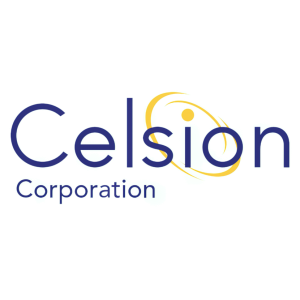Independent Lab Confirms Immunogenicity and Protection with IMUNON’s IMNN-101 in a Live Virus Challenge Against SARS-CoV-2 Variant XBB.1.5
Murine Study by the Wistar Institute Builds Upon Favorable Results Previously Reported by IMUNON With its Prototype PlaCCine Vaccine Modality
LAWRENCEVILLE, N.J., Feb. 29, 2024 (GLOBE NEWSWIRE) -- IMUNON, Inc. (NASDAQ: IMNN), a clinical-stage drug-development company focused on developing non-viral DNA-mediated immunotherapy and next-generation vaccines, announces positive results from a live virus challenge study conducted for IMUNON by the Wistar Institute with IMNN-101 against the SARS-CoV-2 variant XBB.1.5. This study was conducted using the clinical vector that IMUNON intends to bring into its Phase 1 study during the second quarter and showed IMNN-101 immunogenicity and protective activity in a live viral mouse challenge.
The SARS-CoV-2 XBB.1.5 variant was declared as the variant of concern for the 2023-2024 vaccine by the U.S. Food and Drug Administration (FDA) Vaccines and Related Biological Products Advisory Committee. IMNN-101 is formulated with a synthetic DNA delivery system and administered by intramuscular injection.
IMUNON has reported that intramuscular administration of a single dose of IMNN-101 in mice produced IgG neutralizing antibody and T-cell responses. In an ongoing study, the IMNN-101-induced immune response was maintained for up to four months after vaccination. In a head-to-head comparison, the T-cell responses were substantially higher in PlaCCine-treated mice versus mRNA-treated mice. In addition, the vaccine candidate showed stability at refrigerated temperatures for at least four weeks.
The study conducted by the Wistar Institute confirmed that IMNN-101 elicited robust IgG and neutralizing antibody responses in a dose-dependent manner after a single injection. Challenging the mice with live virus 21 days after the second vaccination showed complete protection.
"As we prepare to launch a Phase 1/2 study with IMNN-101 this spring, our enthusiasm is bolstered by these findings that support our PlaCCine technology as an alternative to mRNA,” said Dr. Corinne Le Goff, president and chief executive officer of IMUNON. “Data continue to show comparable or superior protection from SARS-CoV-2 versus commercial mRNA vaccines, while favorable storage and durability benefits due to longer antigen expression support our belief that PlaCCine has compelling potential as a seasonal vaccine.”
IMUNON previously announced that prototype PlaCCine vaccines showed stability exceeding 12 months at normal refrigerator temperatures and at least 2 weeks at 37°C. Protection in non-human primates was greater than
About IMUNON
IMUNON is a fully integrated, clinical-stage biotechnology company focused on advancing a portfolio of innovative treatments that harness the body’s natural mechanisms to generate safe, effective and durable responses across a broad array of human diseases, constituting a differentiating approach from conventional therapies. IMUNON is developing its non-viral DNA technology across four modalities. The first modality, TheraPlas®, is developed for the coding of proteins and cytokines in the treatment of solid tumors where an immunological approach is deemed promising. The second modality, PlaCCine®, is developed for the coding of viral antigens that can elicit a strong immunological response. This technology may represent a promising platform for the development of vaccines in infectious diseases. The third modality, FixPlas®, concerns the application of our DNA technology to produce universal cancer vaccines, also called tumor associated antigen cancer vaccines. The fourth modality, IndiPlas®, is in the discovery phase and will focus on the development of personalized cancer vaccines, or neoepitope cancer vaccines.
The Company’s lead clinical program, IMNN-001, is a DNA-based immunotherapy for the localized treatment of advanced ovarian cancer currently in Phase 2 development. IMNN-001 works by instructing the body to produce safe and durable levels of powerful cancer-fighting molecules, such as interleukin-12 and interferon gamma, at the tumor site. Additionally, the Company is conducting IND-enabling preclinical studies for the development of a COVID-19 booster vaccine (IMNN-101) and a treatment for the LASSA virus (IMNN-102). The Company has also initiated preclinical work to develop a Trp2 tumor associated antigen cancer vaccine in melanoma (IMNN-201). We will continue to leverage these modalities and to advance the technological frontier of plasmid DNA to better serve patients with difficult-to-treat conditions. For more information on IMUNON, visit www.imunon.com.
Forward-Looking Statements
IMUNON wishes to inform readers that forward-looking statements in this news release are made pursuant to the “safe harbor” provisions of the Private Securities Litigation Reform Act of 1995. Readers are cautioned that such forward-looking statements involve risks and uncertainties including, without limitation, unforeseen changes in the course of research and development activities and in clinical trials; the uncertainties of and difficulties in analyzing interim clinical data; the significant expense, time and risk of failure of conducting clinical trials; the need for IMUNON to evaluate its future development plans; possible acquisitions or licenses of other technologies, assets or businesses; possible actions by customers, suppliers, competitors or regulatory authorities; and other risks detailed from time to time in IMUNON’s filings with the Securities and Exchange Commission. IMUNON assumes no obligation to update or supplement forward-looking statements that become untrue because of subsequent events, new information or otherwise.
Contacts:
| IMUNON | LHA Investor Relations |
| Jeffrey W. Church | Kim Sutton Golodetz |
| Executive Vice President, CFO | 212-838-3777 |
| and Corporate Secretary | Kgolodetz@lhai.com |
| 609-482-2455 | |
| jchurch@imunon.com |
# # #








